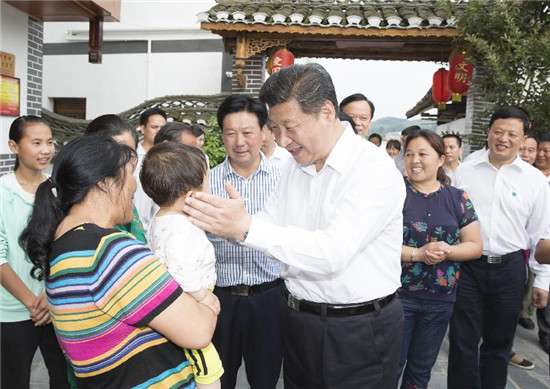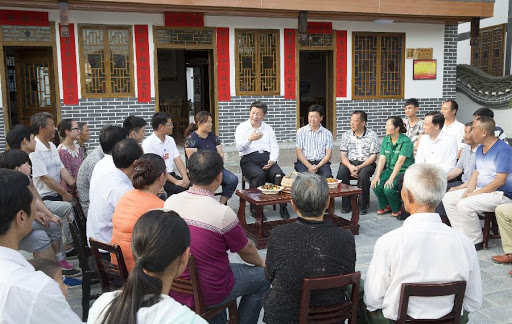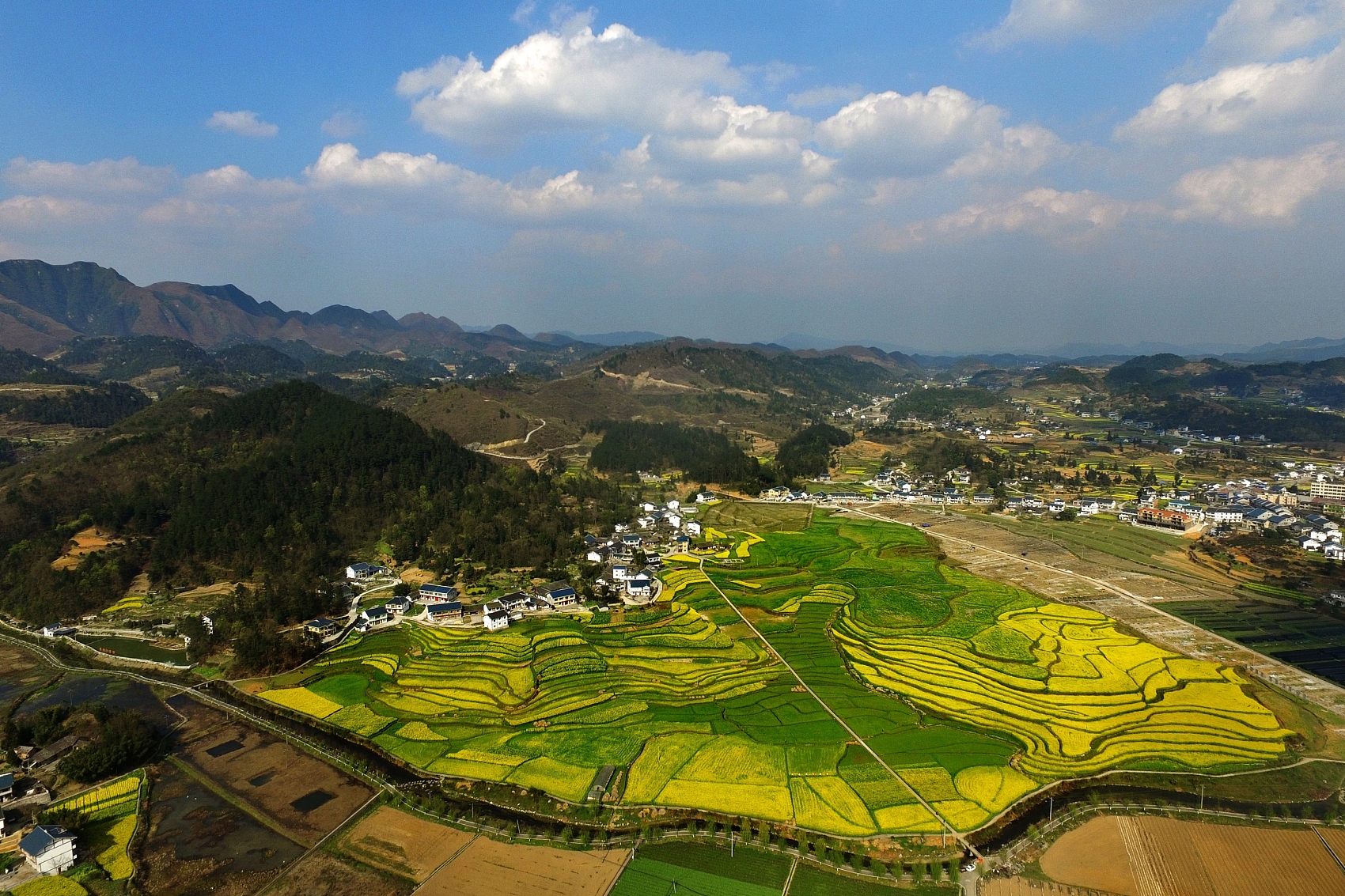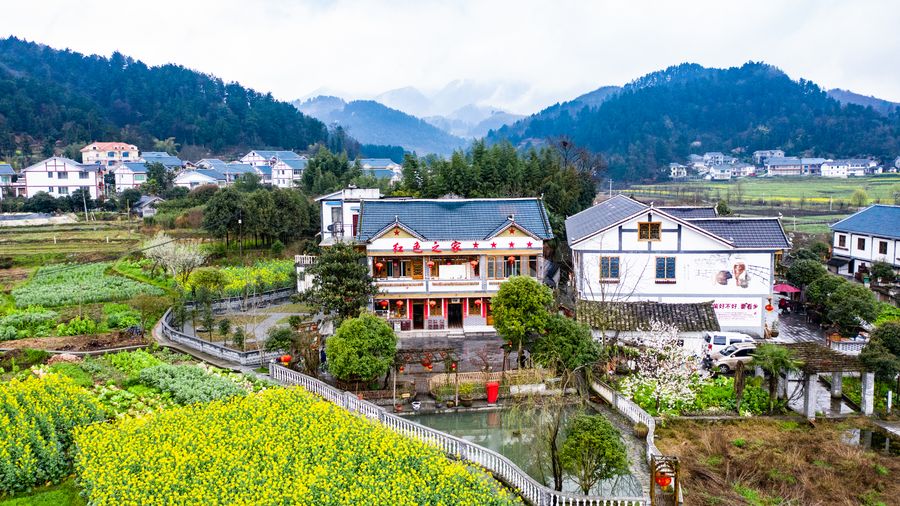Chinese President Xi Jinping once said, "I have been immersed in the atmosphere in historic revolutionary areas. Many places where I have been working are such areas, and my feelings for them are very deep."
Born into a revolutionary soldier's family, Xi grew up on the Loess Plateau of Northwest China's Shaanxi Province. During the years when he was working in the provinces, Xi paid attention to the development of historic revolutionary base areas and the residents' livelihood. He still frequently visits these areas.

President Xi Jinping meets residents of Huamao village, Fengxiang township, Zunyi county in Southwest China's Guizhou Province on June 16, 2015. (Photos: Xinhua)
Located in Zunyi city in Southwest China's Guizhou Province, Huamao village was a place where the Red Army passed through during the Long March. At that time, the Red Army stayed in Huamao and held a meeting in neighboring Gouba village.

President Xi Jinping visits residents of Huamao village, Fengxiang township, Zunyi county in Southwest China's Guizhou Province on June 16, 2015.
In June 2015, Xi visited Southwest China's Guizhou Province for the first time and Zunyi was the first stop. After visiting the site of the Zunyi Conference, he walked into Huamao village to learn about the changes.
It was midsummer. In the fields along the roads in Huamao village, contiguous sunflowers were blooming brightly, and Xi got out of the car for a view. According to officials, with the construction of beautiful villages, Huamao with its lush mountain flowers has become one of those must-have wedding photography locations, attracting nearby residents.
There were flowers blooming on the country roads and houses on both sides of the road were clean and tidy. Xi said, "No wonder everyone came here. The sense of nostalgia is found here."

Huamao village, Fengxiang township in Zunyi city, Southwest China's Guizhou Province on July 14, 2020.
Xi once said that nostalgia means that once you leave a place, you miss it.
Huamao, a village where people can find such nostalgia, was formerly called Huangmaotian, or "poor and barren place."
With implementation of a precise poverty alleviation strategy, the people of Huamao have been focusing on building a beautiful rural area, developing modern agriculture, rural tourism and innovative ceramic skills.
In the past about 2,000 out of more than 4,000 people in Huamao went out to work.
By 2020, about 300 villagers worked outside the province. The villagers who went out to work have returned to their hometowns, starting their own businesses.
In 2020, the village received 1.02 million tourists and the per capita disposable income of the villagers reached 20,400 yuan ($3188).

A red tourism farmhouse in Huamao village, Fengxiang township, Zunyi city, Southwest China's Guizhou Province, on February 28, 2020.
Small white buildings are strewn together in Huamao. Among them is a farmhouse where the Red Army stayed. It was also the first farmhouse in the village to open for rural tourism.
During his trip to Guizhou in 2015, Xi went to the red house and chatted with villagers in the courtyard. Xi asked questions including:
"What do you grow?"
"How's going with the land management?"
"How is the rural tourism?"
The villagers sat and chatted with Xi, each with a smile on their face.
Xi said, "People's support is an important criterion for assessing our work. Whether the Party's policy is good or not depends on whether it makes the people smile or cry. If they smile, it means the policy is good. If someone is crying, we need to pay attention. What needs to be corrected must be corrected, and what needs to be improved must be improved."
(Compiled by Dong Feng; Source: CCTV)


